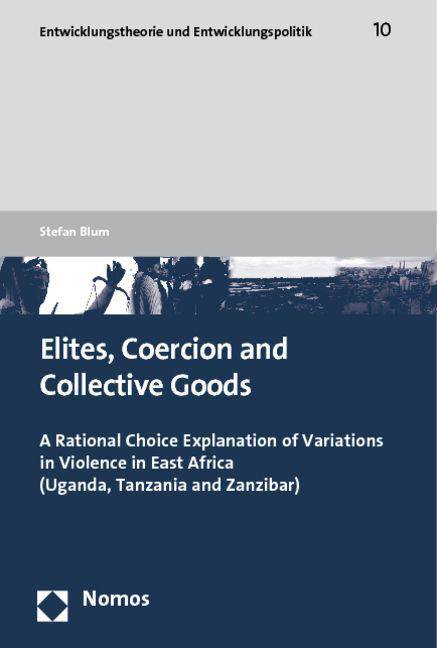
En raison d'une grêve chez bpost, votre commande pourrait être retardée. Vous avez besoin d’un livre rapidement ? Nos magasins vous accueillent à bras ouverts !
- Retrait gratuit dans votre magasin Club
- 7.000.000 titres dans notre catalogue
- Payer en toute sécurité
- Toujours un magasin près de chez vous
En raison de la grêve chez bpost, votre commande pourrait être retardée. Vous avez besoin d’un livre rapidement ? Nos magasins vous accueillent à bras ouverts !
- Retrait gratuit dans votre magasin Club
- 7.000.0000 titres dans notre catalogue
- Payer en toute sécurité
- Toujours un magasin près de chez vous
Elites, Coercion and Collective Goods
A Rational Choice Explanation of Variations in Violence in East Africa (Uganda, Tanzania and Zanzibar)
Stefan Blum
39,45 €
+ 78 points
Description
This study contributes to explain the puzzling variation in violent conflict in post-independence East Africa, specifically between and within Uganda and Tanzania. Although at the time of independence, both countries showed considerable similarities with regard to background conditions such as geography, ethnic composition, income levels and colonial regime, independent Uganda experienced some of the worst violence in Africa leading to several hundred thousand deaths, while Tanzania is commonly described as an island of peace and stability. The authors argue that existing explanations focusing upon the level of democracy on the one hand and of inequalities along identity group lines on the other are unable to explain this variation in violence. Following an application of the statistical Collier/Hoeffler model and underlying economic theory to their observations, they develop a modified rational-choice framework which focuses upon individual rationales to contribute to violence. The main argument is that peace in East Africa resulted when a small group of individuals with a long-term maximization rationale - associated with a shared ethnic, racial or religious identity - were able to overcome collective action problems and establish a preponderant coercive position. In a productive economy, such a position made it attractive for them to forego present for future appropriation from their subjects and to provide a peaceful order as well as other collective goods. Based upon a theoretical framework the study derives some scenarios for future political developments in Tanzania, Uganda and Zanzibar, and looks at possible implications for policy. Finally, the scope of the present research and its contextualization in the broader scientific and policy debate are discussed.
Spécifications
Parties prenantes
- Auteur(s) :
- Editeur:
Contenu
- Nombre de pages :
- 246
- Langue:
- Anglais
- Collection :
- Tome:
- n° 10
Caractéristiques
- EAN:
- 9783832960148
- Format:
- Livre broché
- Dimensions :
- 153 mm x 227 mm
- Poids :
- 374 g

Les avis
Nous publions uniquement les avis qui respectent les conditions requises. Consultez nos conditions pour les avis.






